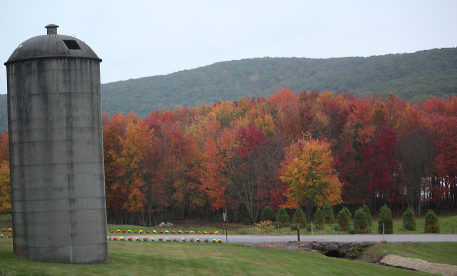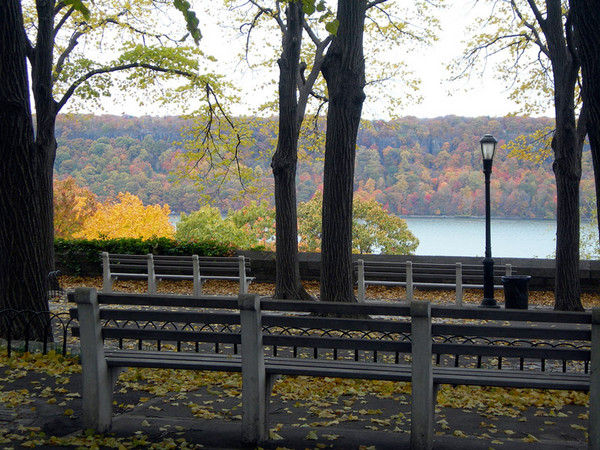‘Tis pleasant, sure, to see one’s name in print;
A book’s a book, although there’s nothing in’t.
Lord Byron, English Bards and Scotch Reviewers
Terry Teachout on the arts in New York City
‘Tis pleasant, sure, to see one’s name in print;
A book’s a book, although there’s nothing in’t.
Lord Byron, English Bards and Scotch Reviewers
I woke up this morning, logged on, and discovered that Duke: A Life of Duke Ellington made the National Book Awards longlist for nonfiction. This is the first time that any book of mine has received anything like that kind of recognition–and of the ten books on the list, Duke is the only one about the arts.
The finalists will be announced on October 16. To find out more about the nonfiction award, including the names of the other books on the list, go here.
Igor Stravinsky records his L’histoire du soldat suite in 1954. The players are Alexander Schneider, Julius Levine, David Oppenheim, Loren Glickman, Robert Nagel, Erwin Price, and Alfred Howard:
(This is the latest in a series of arts-related videos that appear in this space each Monday and Wednesday.)
“There is a great deal of difference between the eager man who wants to read a book, and the tired man who wants a book to read.”
G. K. Chesterton, Charles Dickens
Fall is definitely here–the windshield of our car was covered with leaves yesterday afternoon–and I find that I have mixed feelings about its arrival. Time was when I would have rejoiced, for it used to be my favorite season. Somewhere along the line, though, I changed my mind, and it looks like it’s going to stay changed.
 It’s not that I don’t love the colors of the foliage in Connecticut, or the enlivening touches of crispness in the air. I even love the going-back-to-school memories that are never far from my mind at this time of year. (I was the kind of prig who liked school so much that he couldn’t wait for summer to be over.) Alas, I now find winter increasingly disagreeable, and the trouble with fall is that it’s full of signs of the chilly horrors to come.
It’s not that I don’t love the colors of the foliage in Connecticut, or the enlivening touches of crispness in the air. I even love the going-back-to-school memories that are never far from my mind at this time of year. (I was the kind of prig who liked school so much that he couldn’t wait for summer to be over.) Alas, I now find winter increasingly disagreeable, and the trouble with fall is that it’s full of signs of the chilly horrors to come.
This, needless to say, is a perfectly conventional way to feel, and my generation, the original herd of independent minds, has always prided itself on sneering at convention. But I don’t feel that way anymore. Like Dr. Johnson, I rejoice to concur with the common reader, whose sentiments are no less true for being familiar, and it is the commonly held view of middle-aged New Yorkers that winter is no fun at all. The colder it gets, the harder everyday life becomes, and the harder it is to forget, even momentarily, that whatever else you are, you’re definitely not young anymore.
I’m not normally the broody type, and I try not to sit around moping about the inevitable. Least of all do I go in for the kind of self-conscious melancholy in which a poet like A.E. Housman specialized. Adolescence is bad enough when you’re going through it. It’s far worse when you indulge in it long after the fact (The ear too fondly listens/For summer’s parting sighs,/And then the heart replies). I am what I am, and most of the time I find it possible to live, as the saying goes, in the moment, reveling in who I am and that which is.
In 2005 I marked the twentieth anniversary of my move to New York by quoting in this space a passage from All in the Dances in which I described George Balanchine’s iron determination to live in the moment, whatever the cost:
His ruthlessly practical approach to running a dance company was rooted in the hard-won knowledge that his next breath might be his last. He worked within the means available at the moment, using them to the fullest, never wasting time longing for better dancers or a bigger budget: “A dog is going to remain a dog, even if you want to have a cat; you’re not going to have a cat, so you better take care of the dog because that’s what you’re going to have.” He ran his private life along the same lines: when he had money, he spent it lavishly, on himself and others, and when he didn’t, he lived frugally. “You know,” he said, “I am really a dead man. I was supposed to die and I didn’t, and so now everything I do is second chance. That is why I enjoy every day. I don’t look back. I don’t look forward. Only now.” This dance, this meal, this woman: that was his world.
 I like to think that I live that way as well, at least up to a point. Yet autumn insists relentlessly on its own inescapable meanings, too much so for me to welcome it in the unselfconscious way that I did when I was a young man. What makes it tolerable is the existence of Mrs. T, whom I met eight Novembers ago and married six Octobers ago. To have found a companion in middle age is the supreme solace, and I never take my own autumnal fortune for granted, least of all when it’s snowing. I know, too, that happiness is heightened–at least in theory–by the consciousness of life’s ruthless transience.
I like to think that I live that way as well, at least up to a point. Yet autumn insists relentlessly on its own inescapable meanings, too much so for me to welcome it in the unselfconscious way that I did when I was a young man. What makes it tolerable is the existence of Mrs. T, whom I met eight Novembers ago and married six Octobers ago. To have found a companion in middle age is the supreme solace, and I never take my own autumnal fortune for granted, least of all when it’s snowing. I know, too, that happiness is heightened–at least in theory–by the consciousness of life’s ruthless transience.
Even so, I could wish not to be reminded of it every time a leaf falls, and sometimes, like now, I do.
* * *
Jo Stafford sings Ralph Burns’ “Early Autumn.” The lyric is by Johnny Mercer and the arrangement is by Paul Weston:
From 2004:
What would you do if you knew you had only a day to live? A week? A year? If a piece of unfinished work rested reproachfully on your desk, would you feel obliged to finish it? If you knew you couldn’t get it done in the time remaining, would you try to do as much as you could? Or would you put it aside, smiling wryly at the vanity of human wishes, and spend your last hours communing with better minds than your own?…
Read the whole thing here.
“Reading is going toward something that is about to be, and no one yet knows what it will be.”
Italo Calvino, If on a Winter’s Night a Traveler
A 1974 TV interview with Alfred Knopf:
(This is the latest in a series of arts-related videos that appear in this space each Monday and Wednesday.)
| M | T | W | T | F | S | S |
|---|---|---|---|---|---|---|
| 1 | 2 | 3 | ||||
| 4 | 5 | 6 | 7 | 8 | 9 | 10 |
| 11 | 12 | 13 | 14 | 15 | 16 | 17 |
| 18 | 19 | 20 | 21 | 22 | 23 | 24 |
| 25 | 26 | 27 | 28 | 29 | 30 | |
An ArtsJournal Blog